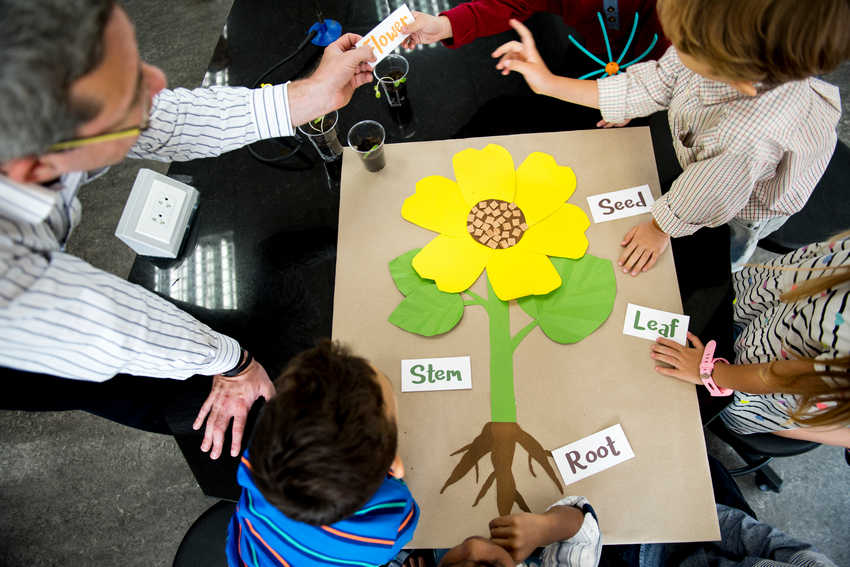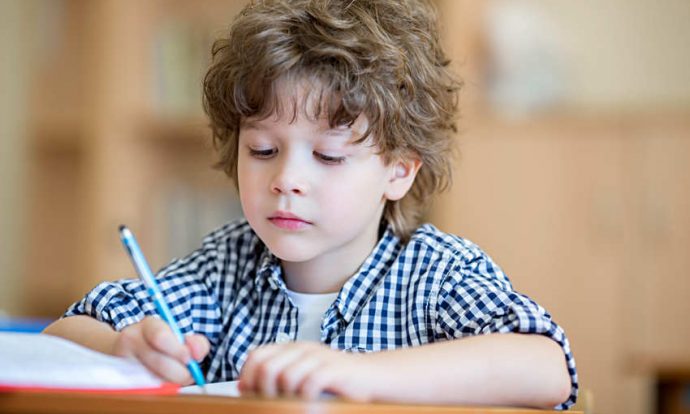Social interaction with other toddlers is key to your toddler’s social development. However, interaction alone won’t lead to fully developed social skills. In fact, it’s not even close to the first step in the process.
Before stepping foot in the preschool classroom, your child is already acquiring social skills through observing and modeling adult behavior. On top of that, having a base of social skills will help your child make friends and succeed in the preschool environment. Whether they’re participating in a group sport in our fitness program or brainstorming over a project in our arts program, having the right set of social skills is invaluable.
For these reasons, it’s important that you teach your child various social skills before they start preschool.
Here are some of the most important.
1. Communication
Your child needs to learn proper communication as soon as possible. These skills are essential for getting along with others not just in preschool but throughout their whole life.
Between ages 2 and 3, your child should know how to make eye contact with people speaking to them. Teach them that eye contact is polite. Make eye contact whenever speaking with them as well for a “show, don’t tell” approach.
As they move towards Kindergarten, they should be saying their “pleases” and “thank yous.” This can take a while to instill in a child. Rather than just telling them to use their manners, be a positive role model to speed this process up. Say please, thank you, and sorry whenever the situation calls for it; your child will eventually do it, too.
2. Listening
The flip side to proper communication is proper listening. Listening not only helps your child function properly in society, but it’ll help them learn, too.
Part of this comes back to teaching eye contact. People generally pick up more of what someone’s saying when making eye contact.
To further develop those listening skills, play listening games like Simon Says. You could also make your own listening games; give your child simple instructions to find something around the house. Gradually increase the complexity of the instructions each time you play.
3. Emotional Expression
Children should learn what emotions are so they can express what they’re feeling verbally rather than some other method. For example, a child who feels angry that it’s not his turn to use a toy may express their emotions through hitting others or throwing things instead of stating how he feels.
Focus on the basic emotions first: happiness, sadness, and anger. As your child grows up, they’ll learn how to express more complex emotions such as grief or regret.
4. Sharing and Taking Turns
One of the fundamental social skills for preschoolers is learning to share and take turns. As young children navigate the world, they often struggle with the concept of delayed gratification and the needs of others. By modeling and reinforcing the act of sharing toys, taking turns in games, and waiting patiently for their needs to be met, we help preschoolers develop a firm understanding of peers’ perspectives. This way of communicating lays the foundation for healthy relationships and positive social interactions throughout their lives.
5. Group Work
Preschool has plenty of group activities, so your child should be prepared. Listening, communication, and emotional expression are all important parts of successful group work; however, your child also needs to learn how to be part of a group.
Group work is a vital social skill that goes beyond sharing and taking turns, focusing instead on collaboration and collective problem-solving. In preschool settings, engaging in group work allows children to explore the dynamics of working towards a common goal. Through structured activities like building a project together or creating a group art piece, children experience firsthand how combining efforts can lead to greater achievements than working alone. These activities help instill a sense of community and cooperation, essential skills for successful interpersonal relationships and academic success in later years.
If you have more than one child, they may develop basic group work skills just by playing with each other. Parents of an only child will have to seek out playgroups and other social opportunities for their child.

6. Caring for Others
Caring for others is a core part of getting along with others and forming relationships. They won’t get along with peers very well if they find joy in others feeling down or hurt.
Part of caring for others is conflict management. Conflicts happen, but children should learn how to deal with them the right way. Teach your child that other people have different perspectives that should be respected; also, teach them how to have a constructive disagreement with somebody and that resorting to name-calling or physical violence is wrong.
7. Building and Maintaining Friendships:
Friendship is a key aspect of a child’s social life that significantly impacts their emotional well-being. Teaching kids social skills involves guiding them on initiating interactions, responding to peers, and sustaining friendships. These interactions help children learn conflict resolution, empathy, and cooperation — skills vital for maintaining lasting relationships. Moreover, through friendships, children discover the joys and challenges of social interactions, which are instrumental in their journey toward developing social skills.
8. Respect for Personal Space
Preschoolers are still learning about personal boundaries and the importance of respecting others’ physical and emotional space. It’s essential to teach children to keep their hands to themselves, ask before hugging or touching someone, and understand the concept of personal bubbles. By emphasizing the need for consent and consideration, caregivers and educators can help children develop a sense of respect for their classmates, laying the groundwork for positive relationships.
9. Appropriate Greeting and Farewell
Teaching children the importance of greetings and farewells is crucial in developing social etiquette. These interactions serve as bookends to social exchanges, providing a structured way for children to enter and exit conversations respectfully. Whether it’s saying “hello” or “goodbye,” these rituals teach children how to acknowledge others’ presence, fostering a culture of respect and consideration. Mastering these polite forms of communication enhances their ability to make and leave a positive impression during social interactions.
10. Non-Verbal Skills
Not everyone says exactly what they mean; teaching your child to read non-verbal cues like body language and tone of voice will help them communicate better with people and form relationships with others.
TV is a great way to teach non-verbal skills. Put on your child’s favorite show, but mute the volume. Pause the show periodically and ask your child what they think the character is feeling. Show them how the character’s facial expression and body language demonstrate their feelings in the scene.
For a more fun activity, try charades. Invite the whole family, get a few notecards, and write an emotion on each card. Take turns drawing a card from the stack and acting out the emotions. Your child will learn how to express themselves non-verbally in addition to learning how to read non-verbal communication from others.
How We Teach Preschoolers Social Skills in the Classroom:
At Right Steps®, we utilize the Reggio Emilia approach to education, which emphasizes collaborative learning environments where children are co-constructors of knowledge. This approach is particularly beneficial in how we teach social skills, as it encourages children to express themselves, engage in group activities, and learn from their peers.
Our classrooms are designed to foster social interaction, with designated areas for cooperative play, group discussions, and role-playing activities. Throughout the day, our teachers model and reinforce positive social behaviors, using a combination of direct instruction, scaffolding, and positive reinforcement. With a nurturing and inclusive environment, we help our preschoolers internalize these communication skills for well-rounded social and emotional development.
How to Help Your Child’s Social Skills at Home
While we work diligently to teach social skills in the classroom, the support and reinforcement of parents and caregivers at home help young kids fully absorb them. Engaging in role-playing activities, reading books that explore social situations, and providing opportunities for your preschooler to practice their active listening, conflict resolution skills, and more.
Worried About Your Child’s Social Skill Development? Signs They Need Support
While most children develop social skills gradually, some may struggle more than others. Signs that your child might need additional support include difficulties in sharing, frequent conflicts with peers, or reluctance to participate in group activities. If you notice these behaviors persistently, it may be beneficial to seek advice from our early childhood educators, who can provide strategies and interventions to help your child improve their social skills.
Learn More Essential Social Skills for Kids
When we take the time to truly teach kids social skills, they learn more than just how to share; they learn effective communication skills that will last a long time. Children develop empathy and critical thinking that aid in forming positive relationships throughout their school career. Reach out to one of our several childcare center locations today for further insights on how to help your preschooler reach their fullest potential academically and socially.




